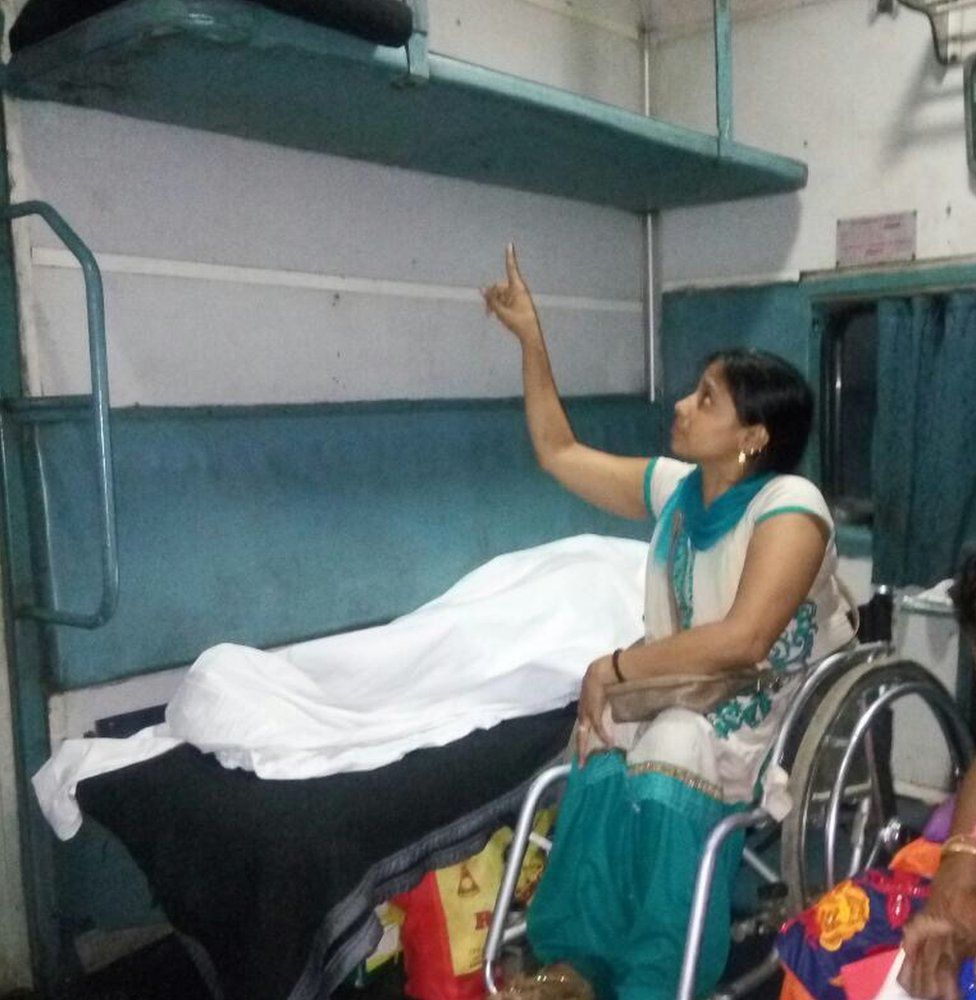India para-athlete forced to sleep on train floor
- Published

A para-athlete has criticised poor infrastructure for disabled passengers on Indian trains after she was forced to sleep on the floor of a carriage.
Suvarna Raj told the BBC she was given an upper berth against the rules.
"It's impossible for a wheelchair-bound person to climb to an upper bunk. And my fellow passengers refused to exchange berths," she said.
The government has ordered an inquiry, but Ms Raj says she wants "permanent solutions" and "not a usual response".
Ms Raj was travelling from Nagpur city in western India to the national capital, Delhi, on Sunday when the incident happened. The journey takes 12 hours.
After news of her ordeal made it to national media, Railways Minister Suresh Prabhu ordered an inquiry.
She welcomed his response but said it was "not enough".
"I have requested Mr Prabhu to take a journey with me and then only he will realise the true extent of the problems disabled passengers face," she said.
She added that most platforms and trains in India lacked disabled-friendly facilities.
"It's not about me having to sleep on the floor or not having access to a disabled-friendly toilet for 12 hours. I want to highlight that thousands of passengers like me face such problems daily," she said.
She said she was also disappointed with her fellow passengers who refused to exchange their lower berths with her.
"Usually people sympathise and exchange their seats, but this time they refused. I really don't know why, but I was very taken aback," she said.
Ms Raj added that disabled people don't want anybody's sympathy.
"We just want to be treated as equals. I have travelled to so many countries around the world and never felt any discrimination," she said.
Ms Raj has represented India at the Para Asian Games in South Korea among other international events.
India has more than 20 million people with physical or learning disabilities, but most public places and services lack infrastructure to support them.